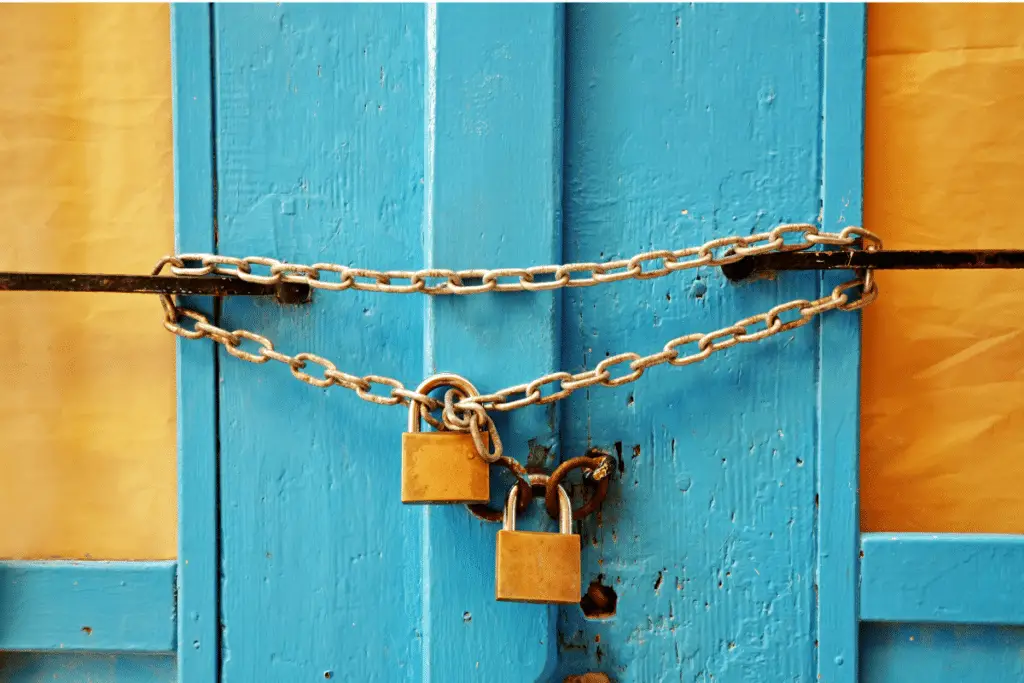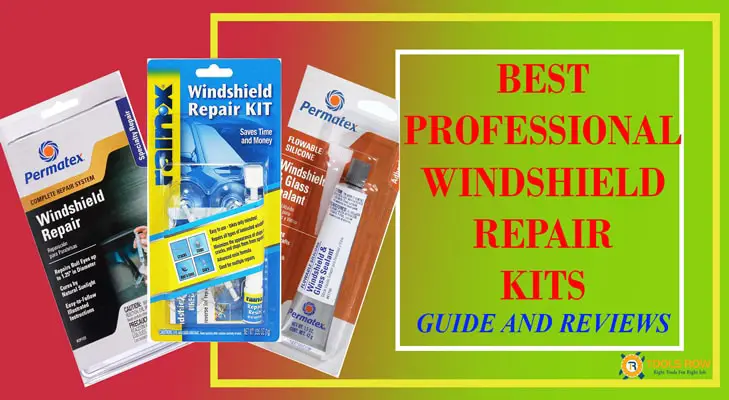A secure lock is the cornerstone of any protection system, and when it comes to safeguarding valuables or securing property, there’s a strong case to be made for using a puck lock. Named for its unique, hockey puck-like shape, this type of padlock is known for its robust design and resilience against common bypass techniques. However, as with all things security-related, the devil is in the details. There’s a wide array of puck locks on the market, and choosing the right one isn’t always a straightforward task. In this blog, we will delve into the common pitfalls people encounter when selecting the best puck lock and provide actionable tips to navigate these.
Table of Contents
Understanding Puck Locks
Before we dive into the common mistakes to avoid, it’s crucial to understand what a puck lock is and how it functions. A puck lock, as the name suggests, resembles a hockey puck. Its circular, flat design isn’t just for aesthetics; it serves a functional purpose. The shackle, the part of the lock that you would typically insert into a hasp, is completely hidden within the body of the lock. This unique design feature makes it incredibly difficult for potential thieves to gain leverage on the lock, thereby providing enhanced security.
Puck locks are typically made from solid steel or hardened steel, which bolsters their resistance against physical attacks, such as drilling, cutting, or prying. As a result, they are a popular choice for securing vehicles, gates, and storage units.
One should not confuse puck locks with other types of padlocks. While conventional padlocks have exposed shackles that can be easily targeted with bolt cutters, the enclosed shackle design of a puck lock provides superior protection. This is not to say that puck locks are impervious; no lock is. However, the additional level of security that puck locks provide is often a game-changer when it comes to preventing unauthorized access.
Understanding the strengths and limitations of puck locks will provide a solid foundation for making an informed decision. But remember, choosing a puck lock—or any lock, for that matter—should not be a hasty decision. It’s about considering your specific security needs, understanding what the market has to offer, and finding the right balance. In the following sections, we will guide you through the most common mistakes people make when choosing a puck lock and how to avoid them.
Common Mistakes to Avoid
In the quest for security, some common errors often lead people astray. These missteps can render your puck lock less effective, putting your property at risk. Let’s identify and demystify these common mistakes:
- Choosing based on price alone: While it’s tempting to go with the most cost-effective option, this can often lead to compromised security. The cheapest puck locks might lack essential features, such as drill protection or a high-security keyway, that are critical for a robust security solution.
- Ignoring the material and build quality: Puck locks are typically made from solid or hardened steel. However, the quality of this steel can vary significantly. Lower-quality materials can be more susceptible to physical attacks. It’s essential to choose a puck lock that uses high-quality, durable materials.
- Overlooking the keyway: The keyway—the slot where the key is inserted—of the lock is often overlooked, but it plays a crucial role in the lock’s security. High-security keyways are more complex, making them harder to pick. A common mistake is opting for a lock with a standard keyway because the keys are easier to duplicate, but this convenience can come at the cost of security.
- Disregarding the lock’s application: Puck locks are not one-size-fits-all. The best choice depends heavily on what you’re using the lock for. Is it to secure a van? A storage unit? A gate? Each application may have different requirements and therefore require a different type of puck lock.
Misconceptions about Puck Locks
Just as there are common mistakes, there are also misconceptions that often lead to poor choices when it comes to selecting a puck lock:
- “All puck locks are the same”: This is a dangerous assumption. As we’ve mentioned, puck locks can vary significantly in terms of material, build quality, keyway design, and more. It’s important to remember that not all puck locks offer the same level of security.
- “Puck locks are impervious to attacks”: While puck locks are designed to be resistant to common bypass techniques, no lock is entirely attack-proof. Puck locks can still be picked or drilled given enough time and the right tools. It’s about increasing the level of difficulty and deterrence, not achieving absolute invulnerability.
- “Puck locks are only for commercial use”: Although puck locks are frequently used in commercial settings due to their robustness, they are equally effective for residential use. They can be used to secure storage sheds, gates, or even high-value items in the home. Don’t limit your options based on this misconception.
Now that we’ve covered the common mistakes and misconceptions, in the next section, we will guide you on the key features to look for when choosing a puck lock. This will help you make an informed choice and select a lock that best fits your security needs.
Features to Look for in a Puck Lock
When you’re browsing through the myriad of puck locks on the market, certain features can make all the difference in terms of security. Here are the critical features to look for:
- Quality Material: As mentioned earlier, most puck locks are made from solid steel or hardened steel. The material’s quality directly impacts the lock’s durability and resistance to physical attacks. Make sure you choose a lock made from high-quality steel to ensure robustness.
- Complex Keyway: A high-security keyway makes a lock significantly harder to pick. Look for locks with a complex, proprietary keyway and keys that are difficult to duplicate.
- Drill Protection: Some puck locks feature anti-drill plates that make it incredibly challenging to drill into the lock. This adds an extra layer of security against one of the most common forms of lock bypassing.
- Rekeyable Lock Cylinder: Being able to rekey the lock allows you to change the key that opens it. This is especially handy if a key gets lost or stolen, or if you want to use the same key for multiple locks.
- Weather Resistance: If the lock will be used outdoors, ensure it’s weather-resistant. Look for features such as rust-proofing and rubber gaskets that protect the lock from the elements.
Choosing the Right Puck Lock for Different Use-Cases
Different scenarios call for different types of puck locks. Here’s a quick guide to help you understand which puck lock might be best for your needs:
- For Commercial Use: If you’re securing a business property or commercial vehicle, go for a puck lock with high-security features such as a complex keyway, an anti-drill plate, and a high-quality steel body. Commercial settings often attract more sophisticated thieves, so additional security measures are essential.
- For Residential Use: If the lock is for a shed or a gate in your home, you might not need the same level of security as in a commercial setting. However, choosing a robust puck lock made of high-quality materials is still advisable. You might also prefer a rekeyable lock if you’re planning on having multiple locks with the same key.
- For Industrial Use: If you’re securing industrial equipment or facilities, look for a puck lock that offers superior durability and protection. Given the high value of many industrial items, a high-security keyway, anti-drill protection, and the ability to be rekeyed are likely essential features.
Remember, these are general recommendations. The best puck lock for you will always depend on your specific circumstances and security needs. As a rule of thumb, consider the value of what you’re protecting, and the potential threats you face, and choose a lock that offers the appropriate level of security.
Top Puck Lock Brands
There are several manufacturers that specialize in high-quality puck locks, each with its unique selling points. Here are a few top brands to consider:
- ABUS: Known for its high-quality security products, ABUS offers a range of puck locks that stand up well against physical attacks. Many of their models feature a hardened steel body and an advanced keyway design, offering superior protection.
- Master Lock: A long-standing name in the world of locks, Master Lock provides reliable puck locks that are both durable and reasonably priced. Their locks often come with anti-drill plates and weather-resistant features, making them a versatile choice.
- PACLOCK: This American brand is well-known for its customizable puck locks. Many PACLOCK models are rekeyable and feature a high-security six-pin cylinder, providing a solid balance between security and convenience.
- Mul-T-Lock: This brand specializes in high-security locks. Their puck lock models offer robust construction, and complex keyways, and often incorporate advanced technology, like interactive keys, for added security.
While these are some of the most recognized brands, there are other quality manufacturers in the market. Always read reviews, understand the features, and compare several options before making your decision.
Avoiding Scams and Counterfeit Products
In the realm of security products, scams, and counterfeit items can pose significant risks. Here are some tips to ensure you’re purchasing a genuine product:
- Buy from reputable sources: Purchase your lock from a well-established, trusted retailer. This could be a hardware store, a security specialist, or an official online platform.
- Check for brand markings: Genuine products typically carry the brand’s logo or name somewhere on the item. If your lock lacks these markings, it could be a counterfeit.
- Beware of prices that seem too good to be true: While everyone loves a good deal, an exceptionally low price could be a red flag. Counterfeit locks often cost significantly less than their genuine counterparts.
- Contact the manufacturer: If you’re in doubt, reach out to the manufacturer. They can often provide information that will help you verify the authenticity of a product.
Remember, the effectiveness of a puck lock is only as good as its authenticity and quality. Making sure you get a genuine product is the first step toward a sound security solution. In the next sections, we’ll wrap up our discussion and answer some frequently asked questions about puck locks.
Conclusion
Choosing the right puck lock is a task that requires thought, understanding, and a bit of research. It’s about assessing your specific needs, understanding the common mistakes, and recognizing the features that make a difference. It’s not just about the price tag, but also the quality, the material, the keyway, and several other factors that come into play.
While the brands mentioned in this blog are known for their reliability, it’s important to remember that brand reputation is only one part of the equation. The ultimate decision should be based on a careful analysis of your needs, the lock’s features, and its applicability to your situation. Avoiding scams and counterfeit products is also crucial to ensuring the effectiveness of your lock.
Remember, the goal is not to achieve an impenetrable fortress but to make unauthorized access as difficult as possible. By understanding puck locks and making an informed decision, you significantly increase the security of your property and peace of mind.
FAQs
To wrap up, let’s address some frequently asked questions about puck locks:
- Can a puck lock be picked?
- Yes, like any lock, a puck lock can be picked. However, those with a complex keyway design can make the picking process significantly more challenging.
- Is it possible to have all my puck locks use the same key?
- Yes, if you purchase puck locks that are rekeyable, you can have them all keyed alike, meaning they can all be opened with the same key.
- Are puck locks weatherproof?
- Some puck locks are designed to withstand weather conditions, featuring rust-proofing and rubber gaskets. However, it’s important to check this feature before purchasing, especially if you plan to use the lock outdoors.
- Can I use a puck lock on my front door?
- Puck locks are typically used for hasp applications like gates, sheds, or commercial vans. They’re not designed for traditional door lock mechanisms. For front doors, deadbolts or knob locks are generally more suitable.
By addressing these questions and the points made in this blog, you should be well-equipped to make a wise decision when choosing the best puck lock to secure your property. Remember, every security situation is unique, so take your time and choose wisely.



